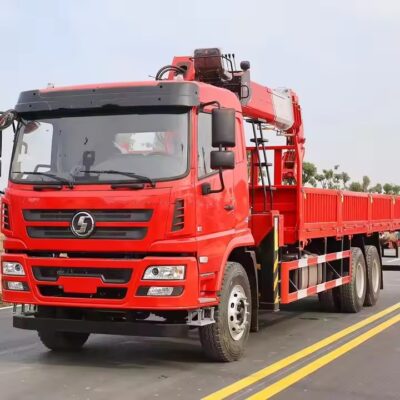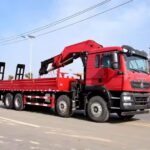When exploring engine options, especially in vehicles like tow trucks, you might encounter terms like “turbocharged” and “intercooler turbocharged.” Both technologies aim to enhance engine performance, but they do so in different ways. Here’s a breakdown of the differences between turbocharging and intercooler turbocharging:

Turbocharging:
Turbocharging involves using a turbocharger to increase the amount of air entering the engine’s combustion chambers. By forcing in more air, the engine can burn more fuel and generate greater power. However, the process of compressing the air also heats it up, which can reduce the air’s density and potentially impact engine efficiency.
Intercooler Turbocharging:
Intercooler turbocharging is an enhancement of standard turbocharging. It incorporates an intercooler, a device designed to cool the compressed air before it enters the engine. This step is crucial because the air coming out of the turbocharger is often very hot.
How It Works:
1. Compression and Cooling:
- In an intercooler turbocharged system, air is first compressed by the turbocharger, which increases its temperature. This hot, compressed air then flows through the intercooler, where it is cooled down before reaching the engine’s intake manifold and combustion chambers. Cooling the air effectively helps lower its temperature to below 50°C (122°F), which can improve engine efficiency and fuel economy.
2. Enhanced Efficiency:
- The intercooler improves the efficiency of the turbocharging system by reducing the temperature of the compressed air. Cooler air is denser, allowing the engine to maintain high performance and efficiency. Without an intercooler, the hot air could lead to reduced engine performance and potential damage due to excessive heat.

Benefits of Intercooler Turbocharging:
1. Increased Power Output:
- Cooling the compressed air increases its density, which can enhance engine power. For every 10°C (18°F) decrease in intake air temperature, engine power can increase by 3%-5% under consistent air-fuel conditions. This means intercooler turbocharging can significantly boost engine performance.
2. Engine Protection:
- High-temperature compressed air can cause higher combustion temperatures, leading to engine knocking or pre-detonation. It can also result in increased nitrogen oxides (NOx) emissions, contributing to air pollution. The intercooler helps lower the intake air temperature, improving combustion efficiency, and reducing emissions and potential engine problems.

Summary:
While turbocharging enhances engine performance by increasing the amount of air and fuel combusted, intercooler turbocharging adds an additional layer of efficiency by cooling the compressed air. This cooling effect not only boosts engine power but also helps in maintaining engine longevity and reducing emissions. For heavy-duty vehicles like tow trucks, these technologies ensure robust performance and reliability, especially in demanding conditions.









